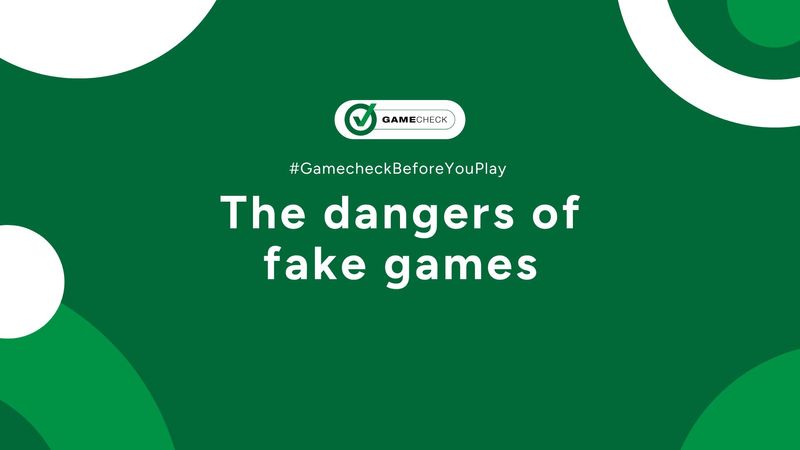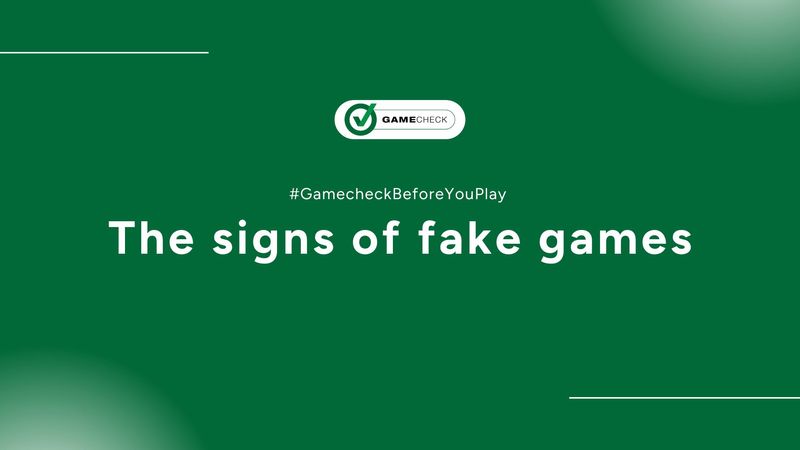Os perigos dos jogos falsos
min de leitura
Principais destaques
Nesta postagem do blog abordamos os seguintes tópicos:
- Os riscos financeiros dos jogos falsos
- Os riscos de roubo de identidade em jogos falsos
- Exemplos reais de fraude financeira
- Como se proteger de jogos falsos
Os perigos dos jogos falsos
Com a tecnologia avançando em um ritmo incrivelmente rápido, os cassinos online estão evoluindo mais rápido do que nunca, oferecendo uma vasta seleção de jogos de cassino online inovadores. No entanto, por trás desse cenário vibrante, esconde-se uma realidade frequentemente esquecida: o aumento de jogos falsos no mercado negro.
Este artigo investiga os perigos dos jogos falsos e como os jogadores podem se proteger.
O mercado de cassinos online passou por alguns avanços significativos na última década, incorporando tecnologias convenientes para operadores de cassinos online, como agregação de jogos de cassino online, que torna a integração de jogos culturalmente preferidos mais rápida e eficiente.
Os provedores de jogos também estão se destacando, com diversos jogos de cassino online que oferecem histórias envolventes, gráficos de alta qualidade e jogabilidade personalizável.
À medida que as preferências dos consumidores evoluem, também evolui a forma como os jogadores escolhem acessar jogos de cassino online. A compatibilidade com dispositivos móveis deixou de ser um luxo para se tornar uma expectativa. Os jogadores buscam experiências de jogo que se encaixem naturalmente em suas vidas, seja uma rodada rápida em uma máquina caça-níqueis virtual ou um jogo interativo com crupiê ao vivo no conforto do seu sofá.
Dados em tempo real e tecnologia móvel são os verdadeiros divisores de águas por trás das apostas ao vivo. Essas inovações tecnológicas ajudaram a criar experiências personalizadas e a manter a emoção fluindo.
Neste cenário digital de diversidade, acessibilidade e conveniência, pode ser fácil para os jogadores esquecerem que os criminosos cibernéticos estão à espreita na internet, capitalizando a popularidade dos jogos de azar on-line e lançando sites fraudulentos que imitam plataformas legítimas na esperança de enganá-los.
Embora o setor legítimo de jogos de azar on-line tenha vários protocolos de segurança em vigor, o mercado negro não regulamentado continua sendo um playground para criminosos cibernéticos.
Cassinos online fraudulentos são projetados para se assemelhar a marcas famosas. No entanto, depois que os jogadores fazem um depósito ou inserem seus dados pessoais, os riscos financeiros dos jogos falsos surgem rapidamente.
Os riscos financeiros dos jogos falsos
O risco mais óbvio que os jogadores enfrentam ao jogar jogos falsos é a perda financeira.
Os jogadores depositam dinheiro esperando jogar jogos justos, mas em vez disso seus fundos são roubados.
Os criminosos cibernéticos podem usar táticas como bloquear contas ou introduzir taxas de saque absurdas.
O abuso de bônus é outra forma de fraude financeira que jogadores que se envolvem com jogos falsos provavelmente encontrarão. Plataformas fraudulentas oferecem bônus altos como isca, mas esses bônus têm condições de saque rigorosas ou desaparecem completamente assim que o jogador faz um depósito.
Ao contrário de cassinos online legítimos e licenciados, que são auditados regularmente para garantir um jogo justo, cassinos online e casas de apostas falsas manipulam as probabilidades a seu favor. O resultado de um jogo é predeterminado, garantindo que a plataforma online sempre vença.
Alguns jogadores nem percebem que foram enganados até que suas contas bancárias estejam completamente esvaziadas. Como as transações às vezes podem parecer compras comuns com cartão de crédito, o roubo financeiro pode passar despercebido por meses.
Os riscos de roubo de identidade em jogos falsos
Outro grande risco para os jogadores é o roubo de seus dados pessoais.
Cibercriminosos que operam sites fraudulentos que oferecem jogos falsos geralmente usam dados roubados para fins maliciosos. Esses dados são frequentemente coletados para fins fraudulentos, incluindo roubo de identidade.
Plataformas falsas frequentemente solicitam aos jogadores informações pessoais, incluindo endereços de e-mail, números de telefone e dados bancários. Esses dados são então vendidos na dark web ou usados para futuros ataques de phishing, onde cibercriminosos se passam por entidades legítimas para roubar dados ainda mais confidenciais.
Fraudadores podem usar as informações coletadas das contas de iGaming para invadir outras contas online das vítimas. Os jogadores costumam usar a mesma senha em vários sites, facilitando a invasão de contas de e-mail pessoais, perfis de redes sociais ou até mesmo aplicativos bancários.
Em alguns casos, sites falsos são simplesmente ferramentas de coleta de dados projetadas para coletar o máximo de informações pessoais possível. Munidos de informações pessoais roubadas, os cibercriminosos podem solicitar cartões de crédito ou empréstimos em nome da vítima. Isso pode causar danos duradouros à reputação financeira da vítima.
-1.png)
Exemplos reais de fraude financeira
Estudo de caso 1: O caso de fraude europeia de 2020
Em 2020, um golpe alarmante surgiu no mercado europeu, tendo como alvo direto jogadores do Reino Unido, Alemanha e Espanha. O golpe envolvia um cassino online falso que oferecia bônus "exclusivos" a novos usuários que se cadastrassem por meio de um link específico compartilhado em plataformas de mídia social. No entanto, logo após o cadastro, vários jogadores perceberam que suas contas bancárias haviam sido acessadas sem permissão.
Após uma investigação mais aprofundada, foi revelado que se tratava de um cassino fraudulento, projetado para coletar dados financeiros e pessoais confidenciais. Os fraudadores por trás dessa operação tinham acesso a milhares de números de cartão de crédito e dados bancários de jogadores.
Os dados foram vendidos a outros cibercriminosos na dark web, resultando em roubo de identidade e fraude financeira generalizados. Alguns jogadores tiveram suas contas bancárias esvaziadas, enquanto outros tiveram grandes somas de dinheiro debitadas de seus cartões.
As autoridades do Reino Unido e da Espanha iniciaram investigações rapidamente, mas os criminosos por trás da plataforma fraudulenta de cassino online conseguiram escapar para jurisdições onde as leis de jogos de azar eram menos rigorosas, dificultando o processo.
Estudo de caso 2: O golpe da "Aposta Grátis" nos Estados Unidos
Em 2019, uma plataforma falsa de apostas esportivas ganhou popularidade entre os entusiastas do esporte nos Estados Unidos. O site anunciava "apostas grátis" e odds altas nas principais ligas esportivas americanas, como a NFL. O site imitava uma plataforma legítima de apostas esportivas, oferecendo bônus promocionais atraentes e alegando ser totalmente licenciado.
No entanto, após depositar dinheiro, vários jogadores tiveram suas contas bloqueadas após solicitarem um saque. Pior ainda, alguns usuários relataram transações suspeitas vinculadas às informações de seus cartões de crédito.
Em uma investigação posterior, foi descoberto que o site era uma plataforma fraudulenta projetada especificamente para coletar detalhes de cartão de crédito e dados pessoais dos usuários.
Estudo de caso 3: O golpe multinacional envolvendo salas de pôquer falsas
Um golpe em larga escala envolvendo salas de pôquer falsas teve como alvo jogadores na Europa e nos Estados Unidos. As salas de pôquer falsas, que pareciam legítimas, com software, mesas e gráficos quase idênticos às plataformas de pôquer online reais, prometiam aos jogadores ganhos substanciais.
No entanto, quaisquer ganhos eram imediatamente anulados por "taxas de saque" absurdas, que só podiam ser contornadas depositando mais fundos. Mais de 5.000 jogadores em vários países foram enganados, com perdas que variaram de centenas a milhares de dólares.
Foi descoberto que os cibercriminosos por trás do golpe usavam a plataforma de pôquer como fachada para roubo de identidade e fraude financeira. Eles tinham acesso a uma vasta gama de dados pessoais dos jogadores, incluindo senhas. Essas informações eram então usadas para invadir outras contas online dos jogadores, incluindo sites bancários, resultando em perdas financeiras ainda mais significativas.
Como se proteger de jogos falsos
1. Use plataformas licenciadas e regulamentadas
Certifique-se de que o cassino online escolhido seja licenciado e regulamentado por uma autoridade respeitável, como a Comissão de Jogos de Azar do Reino Unido (UKGC) ou a Autoridade de Jogos de Malta (MGA). Cassinos online legítimos estão sujeitos a regras rígidas e auditorias regulares para garantir a imparcialidade.
2. Verifique os métodos de pagamento seguros
Plataformas legítimas oferecem gateways de pagamento seguros e protocolos de criptografia para proteger suas informações financeiras. Evite sites que aceitam apenas criptomoedas ou métodos de pagamento não convencionais, pois costumam ser mais difíceis de rastrear.
3. Leia avaliações e faça pesquisas
Antes de se cadastrar em qualquer site de jogos online, leia avaliações de fontes confiáveis. Procure por avisos sobre possíveis golpes ou relatos de atividades fraudulentas.
4. Use senhas únicas e fortes
Proteja suas contas com senhas fortes e use autenticação de dois fatores sempre que possível. Verifique regularmente seus extratos financeiros em busca de qualquer atividade incomum. Se suspeitar de fraude, denuncie ao seu banco imediatamente.
5. Use o Gamecheck antes de jogar
O Gamecheck protege os jogadores dos riscos financeiros envolvidos em jogos falsos, principalmente identificando e expondo os cassinos online que hospedam esses jogos.
Ao fornecer essas informações, a Gamecheck capacita os jogadores a tomar decisões informadas sobre onde jogar, ajudando-os a evitar plataformas onde podem correr maior risco de perdas financeiras devido a jogos injustos ou manipulados.
-1.png)
Aqui está uma explicação detalhada de como o Gamecheck consegue isso:
• Verificação da autenticidade do jogo
A Gamecheck utiliza um processo estruturado para investigar jogos de cassino online. Isso envolve a coleta de evidências, como URLs de lançamento de jogos, e o compartilhamento dessas informações com os provedores de jogos para autenticação. Esse processo permite que a Gamecheck determine se os jogos são "jogos reais" ou "jogos falsos".
• Sinalizar cassinos online com "jogos falsos detectados"
Quando o Gamecheck identifica um único jogo falso em uma plataforma de cassino online, todo o cassino é rotulado como tendo "jogos falsos". Isso sinaliza claramente aos jogadores que a plataforma pode não ser confiável e que jogar lá pode expô-los a riscos financeiros.
• Transparência através de resultados publicados
A Gamecheck mantém a transparência publicando relatórios detalhando o status dos cassinos online, incluindo se eles estão operando "jogos reais" ou têm "jogos falsos".
Os jogadores podem acessar essas informações pesquisando por um cassino online no site Gamecheck. Isso permite que os jogadores verifiquem o status de um cassino online antes de depositar dinheiro ou jogar, mitigando assim quaisquer riscos financeiros potenciais.
• Incentivar a denúncia de jogadores
A Gamecheck incentiva os jogadores a denunciarem cassinos online suspeitos. Essas informações auxiliam a Gamecheck a identificar plataformas problemáticas, protegendo ainda mais a comunidade de jogadores contra danos financeiros.
• Colaborar com provedores de jogos
A Gamecheck colabora com provedores de jogos para confirmar a autenticidade dos jogos. Essa colaboração garante a precisão das conclusões da Gamecheck.
• Desenvolvimento do Selo Gamecheck
A Gamecheck está se preparando para lançar um "Gamecheck Seal" integrado ao blockchain, que inclui um selo digitalizável e uma página de selo que permite aos jogadores verificar instantaneamente a autenticidade de um cassino online e seus jogos em instantes.
Impacto de jogos falsos na indústria
A indústria de jogos de azar online oferece uma nova e empolgante fronteira de oportunidades de entretenimento digital. No entanto, o aumento de jogos falsos coloca os jogadores em risco de perdas financeiras significativas, e as fraudes em jogos de azar online estão causando um impacto financeiro severo no setor.
A tecnologia desempenha um papel fundamental nas atividades de monitoramento. As empresas devem investir em melhores ferramentas de monitoramento, preservando a privacidade dos usuários.
O objetivo da Gamecheck não é alarmar, mas capacitar os jogadores com conhecimento e lembrá-los dos riscos envolvidos em jogos falsos, para que possam tomar decisões informadas.
Ao identificar se seus jogos de cassino online são reais ou falsos antes de jogar, você pode se proteger de quaisquer riscos financeiros e de roubo de identidade desnecessários.
Pense na Gamecheck como sua aliada confiável, garantindo que você jogue jogos de cassino online reais, livre de perdas financeiras enganosas.
Artigos relacionados

